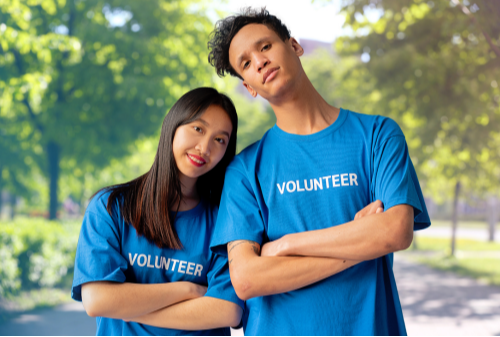Have you ever seen a movie, watched a TV show, or— in this day and age— watched a video clip and thought, “Wow, that was creative?” Creativity, whether we acknowledge it or not, is the essence of entertainment. From the colors on our child’s Hydro Flasks to the different shades of green on cars, creativity captivates and engages the viewer.
Developing our creativity goes beyond the looks and pictures we see in our everyday lives. Strengthening one's own creative lens helps develop us as people. Our critical thinking skills, problem-solving, and our ability to empathize all “level up” by leaning into the establishment of our creative persona.
Why Students Need Creative Writing in Today’s Academic World
Creative writing is especially important for our middle and high schoolers. When they make the choice to think creatively, a whole new skill set becomes available to them.

No matter the class or subject, once a student understands the benefits of thinking creatively, they can go beyond the predefined limit and start taking on a role as an innovator. A lost skill in this day and age is the ability to publicly speak and give an engaging presentation. The words being said out loud are one thing, but the words we choose to say— and how we say them— add a different dimension that we can use to our advantage. A more entertaining delivery will always lead to a more effective and persuasive message.
Preparing Students Beyond Academic Writing for College and Life
Generally, schools do not put a major emphasis on developing creative writing skills. They mainly focus on academic templates and models. That leads to shortcomings when students are asked to express themselves in questions such as “Tell me about yourself” or “What would you do with an extra hour in your day?” Ironically, those questions are some of the underlying themes for every college and summer school application.
We need to train our students to take the thoughts they have inside and efficiently transfer that information to an audience who is neither themselves nor their peers, but someone who may never actually meet them. We need to coach our students to be able to make the best first impression they can— sometimes you only get one chance to define the idea of who you are in someone else's mind.
Building Creative Confidence in Students
If students never take the effort and time to comprehend all the little things that make them who they are, how can they expect to illustrate that person when it matters most? In college and job interviews, networking, and especially application essay writing, that “person” needs to be presented— joining enrichment programs such as writing camps will give students the map necessary to start finding all the parts of themselves that will make up their own unique voice.
We recognize that creativity in writing can often get lost amid social media and AI tools, which is why we encourage students to develop their unique voice, overcome creative blocks, and build strong narrative skills. Beyond creative growth, writing camps also offer students to gain practical skills to confidently enter respected writing contests and improve their essays for school and college applications.
If students want to get better at creative writing and expressing themselves, they need to practice regularly—whether that’s through journaling, telling stories, or joining writing contests. Building these skills early will make things like essays, interviews, and presentations feel easier and more natural down the road. Creativity isn’t just something for school; it’s a tool they can use for problem-solving and understanding themselves better throughout life.


